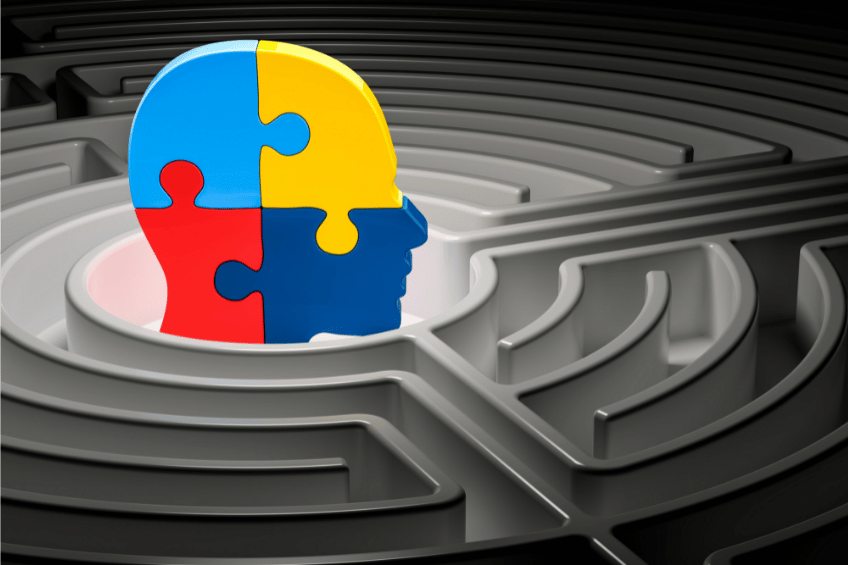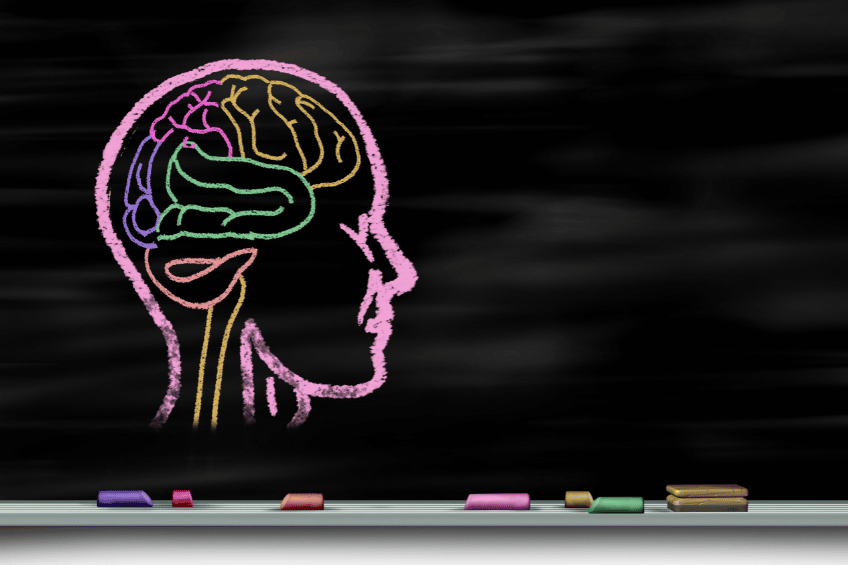Asperger’s syndrome is a complex disorder that is often confused with autism because of some similar behaviors. In fact, it is a type of autism that has very specific symptoms. Asperger’s autism is a syndrome belonging to the broad family of autism spectrum disorders, usually beginning in childhood. It is a developmental brain disorder but is not associated with mental retardation.
Before taking a look at the most common symptoms of Asperger’s, here is a bit of information about the disease for better understanding.
The main characteristics of Asperger’s syndrome are difficulties in acquiring social skills and behaviors, a lack of socialization, a lack of non-verbal communication, and obvious clumsiness.
Asperger’s syndrome can range from mild to severe. It requires multidisciplinary care and support for patients from childhood to adulthood.
What is Asperger’s Syndrome?
It is a developmental disorder of neurobiological origin that affects boys more frequently than girls and begins in childhood, most often in the first two years of life. The disorders associated with Asperger’s syndrome result from poor transmission between the reception and processing of information in the brain. Indeed, people with Asperger’s have difficulty decoding everyday situations. The body, brain and five senses receive information correctly, but a lack of analysis prevents it from being processed, resulting in a different perception of life and the world around the patient, and abnormalities in interactions between people.
Asperger’s syndrome was first described in 1943 by Dr. Hans Asperger, an Austrian psychiatrist, and then reported to the scientific community by British psychiatrist Lorna Wing in 1981. The American Psychiatric Association officially recognized the syndrome in 1994.

The Difference Between Classic Autism and Asperger’s Syndrome
The major difference between Asperger’s syndrome and classic autism is the absence of mental retardation. In fact, the symptom is associated with relatively unimpaired language and intelligence. It is now known that being autistic is a spectrum that can manifest in different ways, which makes it trickier to diagnose.
Asperger’s syndrome can be combined with other disorders:
- “DYS” learning disabilities (dyspraxia, dysgraphia, dyslexia, dysorthographia, dyscalculia, dysphasia);
- Attention problems with or without hyperactivity/impulsivity (ADD-ADD/H);
- Anxiety disorders;
- Obsessive Compulsive Disorders (OCDs);
- Epilepsy.
Causes of Asperger’s Syndrome
The exact origin of Asperger’s syndrome is not known, but genetic factors and brain abnormalities seem to be involved.

Symptoms of Asperger’s Syndrome
1. Difficulty making friends
A person who has Asperger’s Syndrome has difficulty making friends due to a lack of social skills. There is a difficulty in understanding the rules of society and reading non-verbal queues. It is therefore difficult to talk to others or participate in group activities. This can lead to a certain level of frustration, because sometimes, despite their desire to make friends, they are unable to.
2. A need for daily routines
This can manifest in repeated and stereotyped behaviors, and difficulties in adapting to changes and unforeseen events (such as changes in schedule, place, unexpected meetings, etc). When trying to interrupt or change their schedules/activities, they may become very irritable or anxious.
